
Aristotle
Cyprus

1978. Anniversaries and events
| SG512 | 35m | Aristotle |

First day cover
Greece

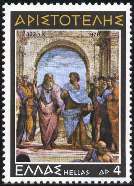

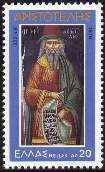
1978. 2300th Death anniversary of Aristotle
| SG1419 | 2d | Bust of Aristotle |
| SG1420 | 4d | School of Athens |
| SG1421 | 7d | Map of Chalkidiki |
| SG1422 | 20d | "Aristotle the Wise" |
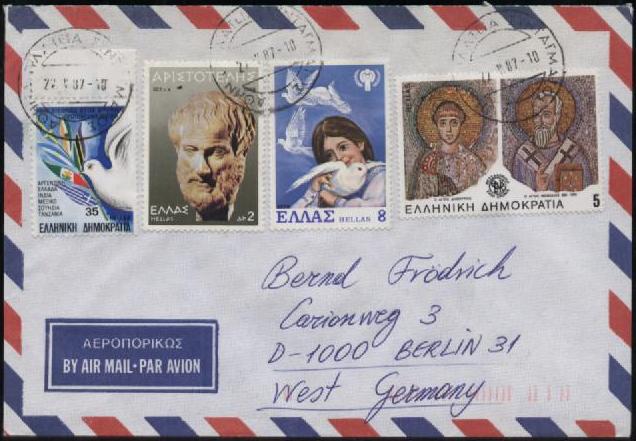
Used cover

First day cover
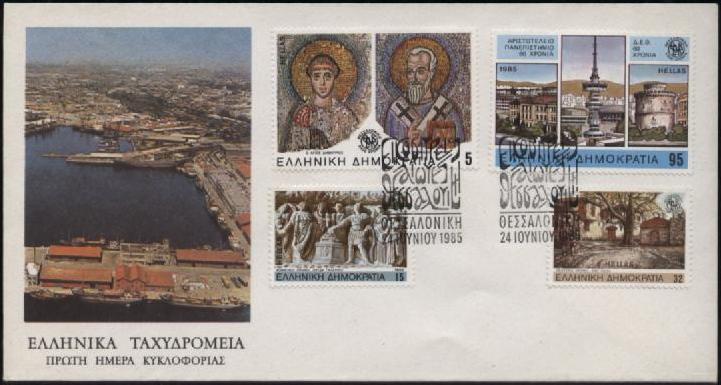
1985. Anniversaries
| Sc1531 | 95d | View of Aristotelian University |
Liberia
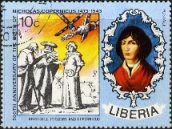
1973. 500th Birth anniversary of Copernicus
| SG1178 | 10c | Aristotle, Ptolemy and Copernicus |
Mexico


1978. 2300th Death anniversary of Aristotle
| SG1451 | 1 peso 60 | Aristotle |
| SG1452 | 4 peso 30 | Aristotle |
Spain

1986. 500th Anniversary of discovery of America by Columbus (1st issue)
| SG2882 | 7p | Aristotle |

First day cover
Yugoslavia

1996. Centenary of modern Olympic Games
| SG3031 | 2d.50 | Athletes with statue of Aristotle on label |
|
Aristotle was born in 384 BC in Stagirus, Macedonia, Greece. His father was a personal medical doctor of King of Macedonia, and that should have effected all of Aristotle's life, since it was a tradition at that time that medical knowledge was extremely secret and always passed from father to son. However, Aristotle's father died when he was only 10 and Aristotle was then brought up by a guardian, probably his uncle. At the age of 17, Aristotle came to the Academy in Athens of Plato and after that became a teacher there for more than 20 years. In 347 BC, Plato died and the post was taken by Speusippus, Plato's nephew. There might have been some conflicts between Aristotle and Speusippus, therefore Aristotle and Xenocrates moved to Assos and Aristotle soon became the leader of a group of philosophers there. However, due to political problems, Aristotle's time there was not long. He luckily escaped the Persians and travelled to Macedonia, where he stayed for the next seven years. After that Speusippus died, but Aristotle was not elected for the head of the Academy, but Xenocrates. Aristotle decided to established his own school, the Lyceum, in 335 BC and spent his last 13 years giving lectures there in almost all subjects. During his life time, Aristotle made a profound contribution to logic and was one of the first to propose axiom systems for sciences. Apart from that, he did a lot of works on physics, philosophy, astronomy, metaphysics and some in mathematics. His ideas still even affected Western thinkers up to the century of 17.
|
| Mathematics Home |
|
|
|
|
@ Hung